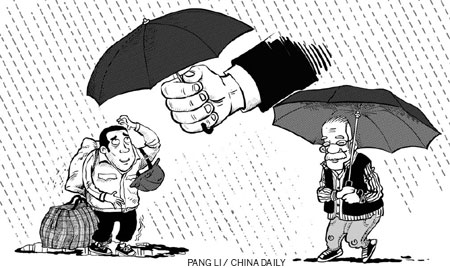Fairer and better healthcare for all

China's economy has developed significantly in the last decades, lifting millions of people out of poverty and improving their health. One of the consequences of the nation's economic progress has been the increase in life expectancy, to 72.5 in 2010. Despite this progress, however, many health issues remain unresolved. While the wealthier portion of the Chinese population has benefited from advanced health technologies, many among the poor do not have adequate access to even the most essential services.
It is estimated that approximately 80 percent of health and medical services are concentrated in cities, which means that timely medical care is not available to more than 100 million people in rural areas. In addition, although almost half of the population lives in rural areas, government expenditures in health tend to heavily favor those living in urban areas.
Although some progress has been made in underdeveloped rural areas, there is still a lack of safe water and sanitation, and widespread under-nutrition, vitamin and mineral deficiencies and indoor air pollution, all of which affect children's health in particular. It is estimated that 80 percent of rural households have no access to a sanitary lavatory and 20 percent of rural households lack safe drinking water.









